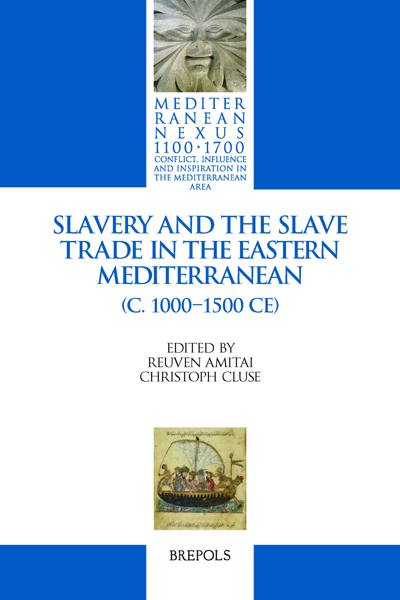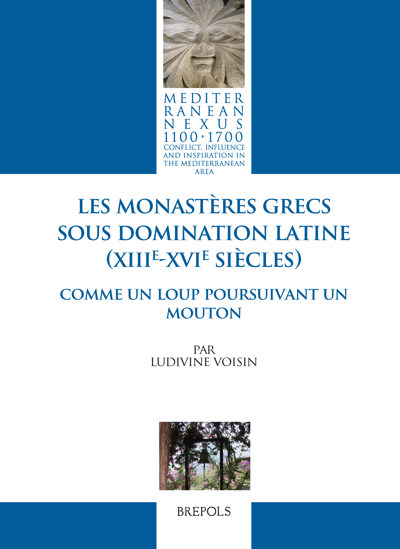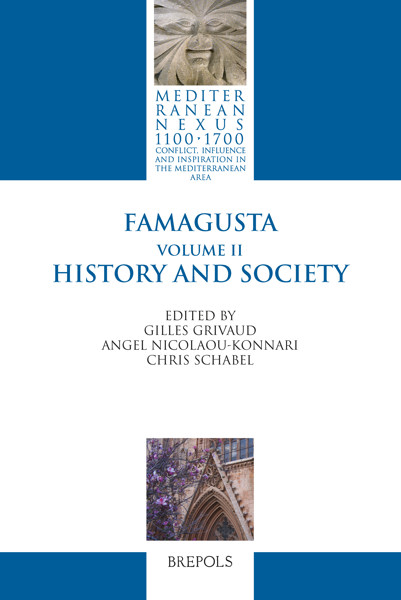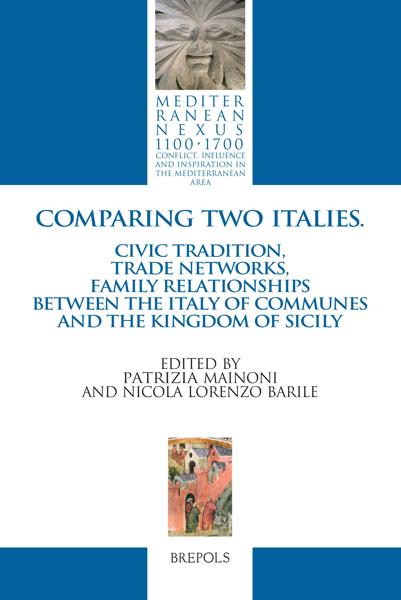
Slavery and the Slave Trade in the Eastern Mediterranean (c. 1000–1500 CE)
Reuven Amitai, Christoph Cluse (eds)
- Pages: 487 p.
- Size:156 x 234 mm
- Illustrations:1 b/w, 5 tables b/w.
- Language(s):English, French
- Publication Year:2018
- € 140,00 EXCL. VAT RETAIL PRICE
- ISBN: 978-2-503-57019-8
- Hardback
- Available
- € 140,00 EXCL. VAT RETAIL PRICE
- ISBN: 978-2-503-57020-4
- E-book
- Available
A comprehensive collection of innovative studies on slavery and the slave trade in the eastern Mediterranean during the Middle Ages.
"(...) this volume is a milestone on the way to a comprehensive exploration of the Mediterranean slave trade as part of a diverse and fragile trading system in which various players participated. As the editors state in their worth reading preface, the volume opens up numerous paths for further research, which can and must be conducted both through in-depth case studies and in further transdisciplinary research. This volume is a must-read for those who are interested in such projects. Due to its reader-friendly structure and the extensive integration of interesting source findings, it is also highly recommended for readers with a general interest in history." (Anna Kollatz, in Sehepunkte, 19/1, 2019)
“This valuable volume studies various facets of the problem of slavery in the later medieval eastern Mediterranean. (…) Slavery and the Slave Trade in the Eastern Mediterranean is a welcome contribution worthy of a wide distribution and readership. Several of its chapters can be fruitfully used in class.” (Stefan Stantchev, in Renaissance Quarterly, LXXII/4, 2019, p. 1475-76)
Reuven Amitai is Eliyahu Elath Professor of Islamic History at the Hebrew University of Jerusalem. His latest books are 'Holy War and Rapprochement: Studies in the Relations between the Mamluk Sultanate and the Mongol Ilkhanate' (1260-1335) (Brepols 2013) and 'Nomads as Agents of Cultural Change: The Mongols and Their Eurasian Predecessors', co-edited with Michal Biran (University of Hawai'i Press 2015).
Christoph Cluse is Senior Researcher and Research Coordinator at the Arye Maimon Institute of Jewish History, Trier University. He is the editor of 'The Jews of Europe in the Middle Ages (Tenth to Fifteenth Centuries)' (Turnhout: Brepols, 2004).
Slavery has played a significant role in the history of human society, not the least in the greater Mediterranean region, since ancient times. Long neglected by mainstream historians, the medieval history of slavery has received an increasing amount of attention by scholars, since the pioneering work of Charles Verlinden (1907–1996). Today historians have generally laid to rest the nineteenth-century preoccupation with whether slavery was a significant ‘mode of production’ in the post-classical period, to concentrate on the changing face of the institution over time by looking at legal norms, linguistic representations and social practice. This volume presents a multi-faceted and interdisciplinary approach to slavery and the slave trade in the Eastern Mediterranean region in the pre-modern period, placing these into a larger historical and cultural context. It surveys the significance of slavery in the three monotheistic traditions, the involvement of Eastern and Western merchants and other agents in the slave trade, and offers new interpretations concerning the nature of this commerce.
This volume includes papers by: Reuven Amitai (Jerusalem), Michel Balard (Paris), Georg Christ (Manchester), Christoph Cluse (Trier), Kurt Franz (Tübingen), Miriam Frenkel (Jerusalem), Yehoshua Frenkel (Haifa), Norman Housley (Leicester), Ernest Marcos Hierro (Barcelona), Amir Mazor (Jerusalem), Johannes Pahlitzsch (Mainz), Danuta Quirini-Popławska (Kraków), Annika Stello (Karlsruhe), Jenia Yudkevich (Jerusalem).
Acknowledgements
Map
Slavery and the Slave Trade in the Eastern Mediterranean (c. 1000–1500 CE): Introduction (Christoph Cluse and Reuven Amitai)
Part One: Religious and Cultural Contexts
Crusading and Latin-Muslim Contacts in the Eastern Mediterranean: the Religious, Diplomatic and Juridical Frameworks and their Implications for the Study of the Slave Trade (Norman Housley)
Slavery in Islam: Legal Norms and Social Practice (Kurt Franz)
The Slave Trade in the Geniza Society (Miriam Frenkel)
Slavery and the Slave Trade in Byzantium in the Palaeologan Period (Johannes Pahlitzsch)
Part Two: The Mamluk Phenomenon
Some Notes Concerning the Trade and Education of Slave-Soldiers during the Mamluk Era (Yehoshua Frenkel)
The Early Experience of the Mamluk in the First Period of the Mamluk Sultanate (1250–1382 CE) (Amir Mazor)
Part Three: Latins in the Eastern Slave Trade
Slavery in the Latin Mediterranean (Thirteenth to Fifteenth Centuries): The Case of Genoa (Michel Balard)
The Venetian Involvement in the Black Sea Slave Trade (14th to 15th Centuries) (Danuta Quirini-Popławska)
Differentiated Legality: Venetian Slave Trade in Alexandria (Georg Christ)
The Catalan Company and the Slave Trade (Ernest Marcos Hierro)
Le transport des esclaves dans le monde méditerranéen médiéval (Michel Balard)
Caffa and the Slave Trade during the First Half of the Fifteenth Century (Annika Stello)
Part Four: A New Look at the Ehrenkreutz Thesis
Between the Slave Trade and Diplomacy: Some Aspects of Early Mamluk Policy in the Eastern Mediterranean and the Black Sea (Reuven Amitai)
The Nature and Role of the Slave Traders in the Eastern Mediterranean during the Third Reign of Sultan al-Nāṣir Muḥammad b. Qalāwūn (1310–1341 CE) (Jenia Yudkevich)
The Role of the Slave Trade in the De recuperanda Treatises around 1300 (Christoph Cluse)




